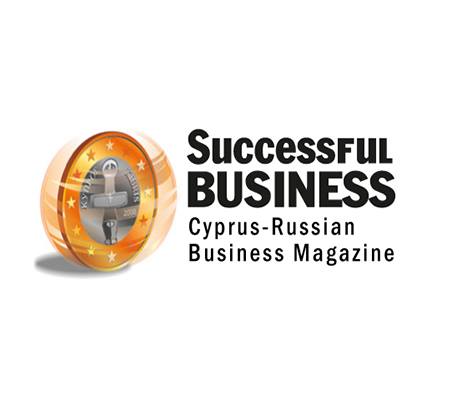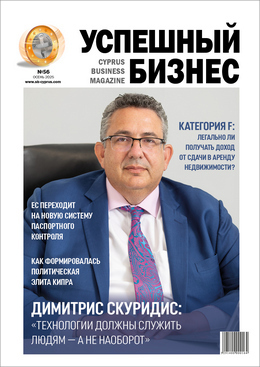Cyprus, as an island community and as a thriving Mediterranean economy, is going through a strange mix of boom times for some, and hard times for others. We are not alone in that, many of our EU neighbours have been through or are experiencing a similar economic shift, however, our rather small and unique economy reacts differently in Cyprus. Our size, fairly modern and nimble economic footprint, provides us the opportunity to change the script, throw out the rule book and use our current economic health to advantage. We must build a more sustainable ecosystem for homegrown local talent and the businesses that will grow up around the large international corporations that relocate here.
RELOCATION, RELOCATION, RELOCATION
Relocating to Cyprus is something that a lot of companies are doing right now. This means the Migration Department reports circa 12,000 relocations of staff working for international companies. This is reflected in our economic growth – GDP is forecast to grow by around 6% in 2023. Property prices have risen faster than GDP on average over the last 5 years. Despite a slowdown in property investment since the abolition of the so-called Golden Passport route to citizenship last year, in 2022 the government introduced more favourable tax benefits for overseas companies to set up their headquarters in Cyprus and have also introduced “The Digital Nomad Scheme”, enabling people to enjoy our beautiful weather and quality of life, while working for companies operating outside the country. The scheme aims to transform our business ecosystem by attracting talented individuals and entrepreneurs.
LOCAL YOUTH SKILLS ARE NOT FIT TO SUPPORT THE TECH AND IT INDUSTRY
We are nothing like the economies of Bulgaria or Latvia who are struggling to fill jobs because of a brain drain, we have a work culture challenge ahead. We have the 7th lowest Gender Pay Gap in the EU, we rank 9th for purchasing power in the EU, and we pay the 5th highest average monthly salaries in the EU. There is a myth in the minds of young people, a hangover from growing up during the economic crisis and high employment years of the last decade, that there are not enough well-paid graduate jobs in Cyprus.
There is no evidence to support that view. Young Cypriots are struggling not because of lack of jobs; they are struggling as their skills are not fit to support the vast vacancies in the Tech and IT industry, created from the government campaign to attract more foreign organisations setting up their headquarters here in Cyprus within these industries. CEOs from these companies have voiced this issue at major technology conferences on the island. They want to support the Cyprus economy and hire local talent, however, the lack of talent, has pushed them to hire overseas professionals. The education system, with the support of these organisations, has to form a closer partnership. We must build joint industry-government forums to evangelize STEM careers and conduct regular visits to schools to talk to young pupils to get them excited about technology as a career path, rather than following the traditional route of becoming accountants, doctors and lawyers. This is the way to increase productivity and raise wages in line with inflation.
SAFE, WELL-PAID JOB FOR LIFE? NOT ANYMORE
Another issue, young professionals are facing is the culture. Young Cypriots want careers in large organisations such as Google or Apple, not their uncle’s shipping company, the local solicitor firm, or a holiday resort. The differentiators are decidedly unCypriot workplace benefits like talent coaching, continuing professional development and flexible working.
This is a major issue; Cypriot professionals are facing within the culture. Traditional Cypriot businesses work on close-knit networks, links between education and local industries, and family connections. You are expected to work-your-way-up, wait your turn for promotion, and stick in the same role for years. That tradition rewards loyalty with security, however this is a fast-moving, digital age where young talent is highly skilled, highly mobile and puts opportunity and experience beyond security. In the rest of the world, as LinkedIn figures remind us, graduates and emerging professionals are hopping jobs faster than ever before – moving for promotion, moving for pay, moving to finance a year of travelling, moving to explore their options. They do not want to settle down in a safe, well-paid job for life – which is closer to the traditional Cypriot way – they want to explore the career world, just like their American, and EU counterparts.
GOALS FOR CYPRUS – SUSTAINABILITY AND INCLUSION
In this coming decade, we know that GDP will decline, inflation will rise, and the all-important drivers of our island economy – tourism, professional services and shipping – will slow down further, paying off pandemic debts and suffering from predicted global recession ahead. This is a recipe for conditions at home that could see Cypriot talent exit these shores – unless we do something about it now. And there are a great many things we should be doing to build a resilient, sustainable workplace ecosystem for young Cypriots. Why? Because everyone knows growth for a relatively small island economy like ours is driven by domestic household consumption as much as tourism. If we want to grow our household consumption, we need population growth (statistics are showing that currently Cyprus is at 25-year low birth rate), young families, affordable housing and well-paid, high-quality jobs beyond professional services, tourism and shipping.
This objective sets out two clear goals for industry leaders in Cyprus – sustainability and inclusion at work.
SUSTAINABILITY AT WORK
Firstly, company leaders need to focus on sustainability, which really means talent acquisition and retention. Retaining talent is a huge win for reducing costs, reducing the recruitment costs of replacing job-hopping young professionals, and extracting more value from the training new hires receive. It is a boost for your bottom line, and a boost for productivity as well. It is also not rocket science to achieve better talent retention, however, it has a price – a cultural one as much as financial. It means considering employment in terms of engagement programmes.
We are all familiar with the concept of onboarding new staff. However, once they are bedded in, what’s next? How do you keep them engaged? The smart money – and companies your young executives will leave you for – will re-onboard staff at regular intervals. Re-onboarding takes the form of 30-, 60- and 90-day programmes for all workforce, assigning short term goals for the teams, awarding badges for performance, and celebrating wins as they go.
It is also a well-known statistic that training, and coaching reduces staff turnover dramatically (studies show 30-50%) – so coaching for emerging Cypriot professionals should help to encourage them to build careers here, not leave for destinations where rents are cheaper to make their wages go further.
INCLUSION IN THE WORKPLACE
Secondly, if we want our young people to benefit from these opportunities, they need to feel included. Inclusion – often paired with Diversity – is by far the most important of those two popular terms. Inclusion means feeling part of the team, feeling listened to, feeling psychologically safe to speak your mind and contribute. Although, every manager hopes their team feels included, there are numerous ways where most teams can improve on that front.
A re-onboarding programme will help to build a sense of inclusion; however, it must go further than that. Celebrating team successes and goals, again, will help. But to really achieve a sense of purpose and belonging, you need to take things up a notch. Reverse mentoring is a great way to build a more inclusive workplace, pairing new hires with senior key stakeholders to help the old hands become more familiar with modern workplace culture – video chats, office Yammer networks, messaging tools – building digital tools into the workplace from top to bottom. Similarly, having younger execs representing their views at board meetings, or holding regular town halls to seek out opinions of emerging talent can be effective.
In Cyprus innovation in the workplace can be very slow in industries that are well established – like professional services or shipping – however, innovation in terms of working processes, flexible working, training, and coaching for new hires to keep them engaged and motivated to stay longer in their roles, is something every business can do, right now, and feel the benefits. Competitive salaries help, but in the modern workplace, it is all about the extras. Training, coaching and wellbeing benefits will transform your workplace, and your bottom line.
THE FUTURE FOR CYPRUS
There is a joke you might know about a big shot from Silicon Valley who complains about an Italian restaurant in Rome for opening 5 minutes late. The angry millionaire tells the owner “The USA dominates the world because we always open on time!” and the restaurant owner replies “So what? We Romans used to dominate the world, but then we learned what was really important. If you make tomato sauce like mama, the world waits for you to open.” The moral of the story is quality and high performance do not mean dumping your culture and heritage for someone else’s corporate culture. It is about finding your own path.
Cyprus has proven to be hugely resilient through the financial crisis and the pandemic, and although we face headwinds like the rest of the EU, from energy prices to paying off debts, we remain in a strong position to succeed and grow, we need to learn from their workplace culture.
Sophia Petrides
Talent Retention and Executive Leadership Coach
Этот адрес электронной почты защищён от спам-ботов. У вас должен быть включен JavaScript для просмотра.
https://linkedin.com/in/sophiapetrides







